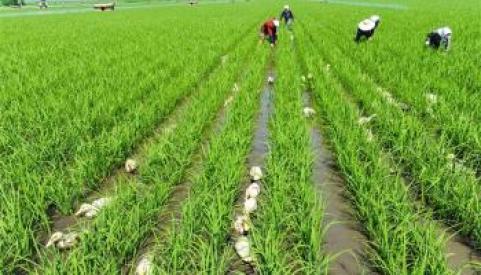Agriculture has always and will always be an important part of every society. But farming won’t be possible when natural resources are being abused to only meet today’s demands. Sustainable, organic, and natural farming have all changed the name of the game in terms of agriculture. Where the appreciation for the products being farmed is a priority and the future is being considered.
Table of Contents
Importance Information about Biodynamic Farming
Now we have biodynamic farming, another revolutionary approach to agriculture is gaining preference and popularity. We’ll be looking at biodynamic farming and the most important things about it that every farmer and person should know.

What is biodynamic farming?
Biodynamic farming, or biodynamic agriculture, is similar to organic farming with a few differences. It is a form of agriculture that recognizes ecology to have a spirit in nature, making it a holistic, ecological, and ethical farming, gardening, food, and nutrition practice.
The origin of biodynamic agriculture is based on Dr. Rudolf Steiner’s approach to organic farming in 1924 and has since been adapted. Biodynamic farms are seen as a whole organism with a variety of elements that make it up. This would be referring to the farmers, plants, animals, soil, and so on. The work that happens on the farm is an attempt to bring and maintain harmony across these elements to support the whole organism.
ALSO READ: PROJECTS THAT REQUIRE EIA
Biodynamic farms work by adapting to the natural landscape, climate, and culture. Through that, they promote biodiversity and encourage natural ecosystems. So, where organic farms would either grow crops or raise livestock, biodynamic farms bring the two together. They also strive to use seedlings and bring livestock into the farm from within their farming system so as not to rely on out-sourced products. This means that to be certified as a biodynamic farm, the whole living organism is required to be self-sustaining.
They also make use of biodynamic calendars that look to the earth, sun, stars, moon, and cosmos to make their farming decisions regarding when to sow, transplant, cultivate and harvest.
What are the advantages of biodynamic farming?
The main advantages of biodynamic farming are that it’s sustainable, natural, nutritious, and combats climate change.
- Sustainable: Not only is a biodynamic farm literally self-sustaining in that it’s responsible for bringing new life onto the farm to meet demands, but it also promotes sustainability in its farming practices. It is all about thinking and acting with the future in mind and protecting the limited natural resources that are available.
- Natural: Being all-natural is an advantage because it means quality and healthy produce. It means there are no harmful chemicals or questionable farming practices that would lead to disease (in consumers or the farm’s plants and livestock). Natural farming methods also lead to more nutritious and tasty food for consumers.
- Combatants of climate change: Biodynamic farms, because of the humus in their soil, can store more carbon in their soil than other conventional farms can. This means that there is less carbon being released into the air. Biodynamic farms are doing more to add less to the effects of climate change by simply respecting the environments and maintaining their organism.
ALSO READ: TIPS FOR ECO-FRIENDLY SMALL FARMS
What are the disadvantages of biodynamic farming?
A few disadvantages associated with biodynamic and even organic farming don’t have a negative environmental impact but, ultimately, its effects reside in the consumer’s experience. The disadvantages include more time and effort to care for the farm, having smaller farm yields at harvesting, and charging more because of those facts.
- More time and effort: Biodynamic farms require more personal care, time, and effort from the farmer’s side. There is more work to be done through a sustainable method and relationships between elements that need to be monitored and maintained than one would find at an industrial farm. But the people who work on biodynamic farms enjoy their work, which is a result of that holistic and spiritual approach to farming. So, in their eyes, it’s not a disadvantage.
- Smaller yields: Because there is more time and effort that goes into biodynamic farming, there are generally smaller yields. It’s also because their farming philosophy requires them to respect and work with the environment. Mass production doesn’t fit with the biodynamic principles.
- Pay a higher price: As a result of smaller yields and more hands needed to staff the farm, consumers have to pay a higher price for the product that is then sold from these farms.
ALSO READ: TIPS FOR LIVESTOCK FARMERS DURING A DROUGHT
Biodynamic farming practices
Any farm can adopt biodynamic farming practices and work towards being a certified biodynamic farm. A few of these sustainable and holistic practices include crop rotation, planting cover crops, introducing organic matter to the soil, recycling, and using natural pest protection.
The most important thing about biodynamic farming is to respect the environment and be self-sustainable for future generations.
